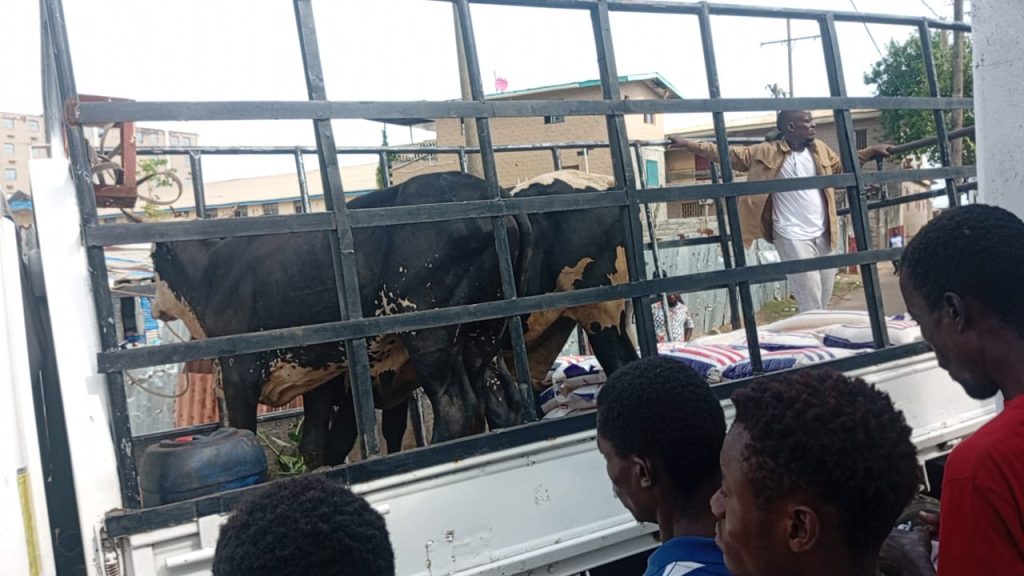The relationship between former Liberian President George Weah and the family of the late former First Lady, Nancy B. Doe, has deteriorated significantly following a controversial exchange involving a condolence package. The Doe family, grieving the loss of Mrs. Doe who passed away on May 21, 2025, rejected a sympathy offering from Mr. Weah delivered during a visit on June 8th. The package, consisting of US$5,000 in cash, 50 bags of rice, and two cows, was returned to the headquarters of Weah’s political party, the Congress for Democratic Change (CDC), on June 9th. This unexpected rejection has fueled speculation about simmering tensions between the former president and the Doe family, raising questions about underlying political or personal grievances that may extend beyond the immediate context of mourning.
The return of the condolence package, led by Mrs. Doe’s daughter, Veronica Mamie Doe, has ignited public debate and placed her actions under intense scrutiny. Critics argue that Ms. Doe’s decision has politicized the grieving process, injecting partisan considerations into what should have been a solemn and private period of mourning. The controversy has exposed deep divisions within Liberian society, with some, particularly those from the country’s Southeastern region, accusing Ms. Doe of stirring unrest and exploiting her parents’ legacy for political gain. Conversely, others have defended her actions, asserting her right to protect her family’s dignity and ensure the respectful remembrance of her father, the slain President Samuel K. Doe.
The public reaction to Ms. Doe’s decision reflects the complex and delicate interplay between politics, tradition, and grief in Liberia. The controversy highlights the enduring legacy of President Doe, whose violent overthrow and subsequent assassination continue to resonate within the nation’s political landscape. The incident also underscores the sensitivities surrounding the role of former leaders and their interactions with the families of past political figures, particularly in a country with a history of political instability and violence.
The controversy surrounding the returned condolence package has further exacerbated the strained relationship between Weah and the Doe family. While the specific reasons behind the rejection remain unclear, the incident suggests a deep-seated resentment and distrust, potentially stemming from historical political differences or unresolved issues related to the circumstances of President Doe’s death. The public nature of the rejection signifies a further breakdown in communication and a deepening rift between the two parties.
This episode is not an isolated incident but rather a reflection of the broader challenges facing Liberia as it navigates its complex political landscape and grapples with the legacies of past leaders. The controversy has opened a public dialogue about the appropriate way to mourn public figures and the role of political actors in these sensitive situations. It also highlights the need for reconciliation and healing in a nation still grappling with the scars of its past.
The incident serves as a stark reminder of the enduring impact of historical events on present-day political dynamics and the complex interplay of personal grief and public perception. The controversy underscores the challenges of navigating the delicate balance between respecting tradition, acknowledging political differences, and promoting national unity in a society marked by a history of political upheaval and social divisions. The fallout from this episode will likely continue to shape the relationship between the Weah and Doe families, as well as influence the broader political discourse in Liberia.


